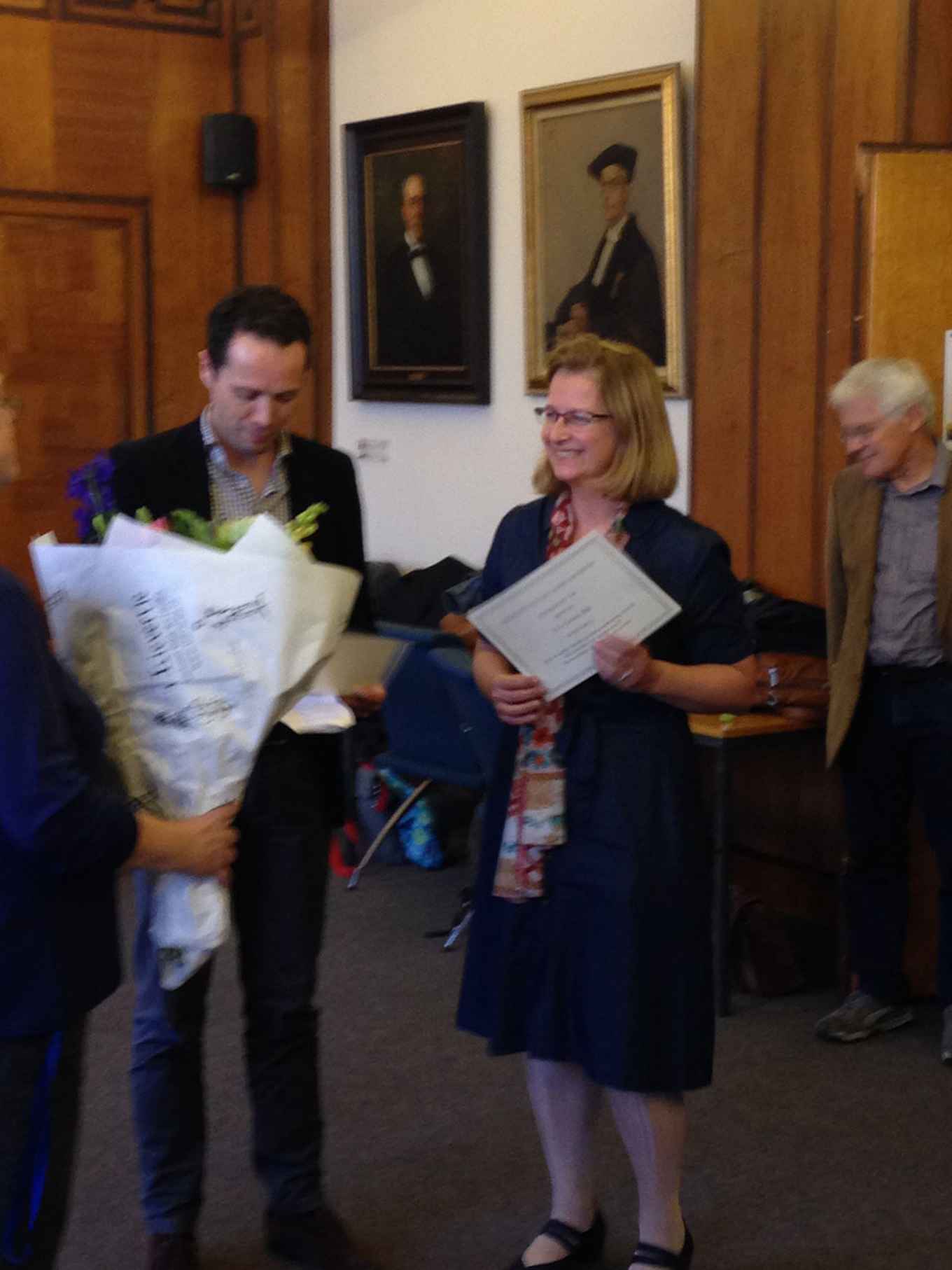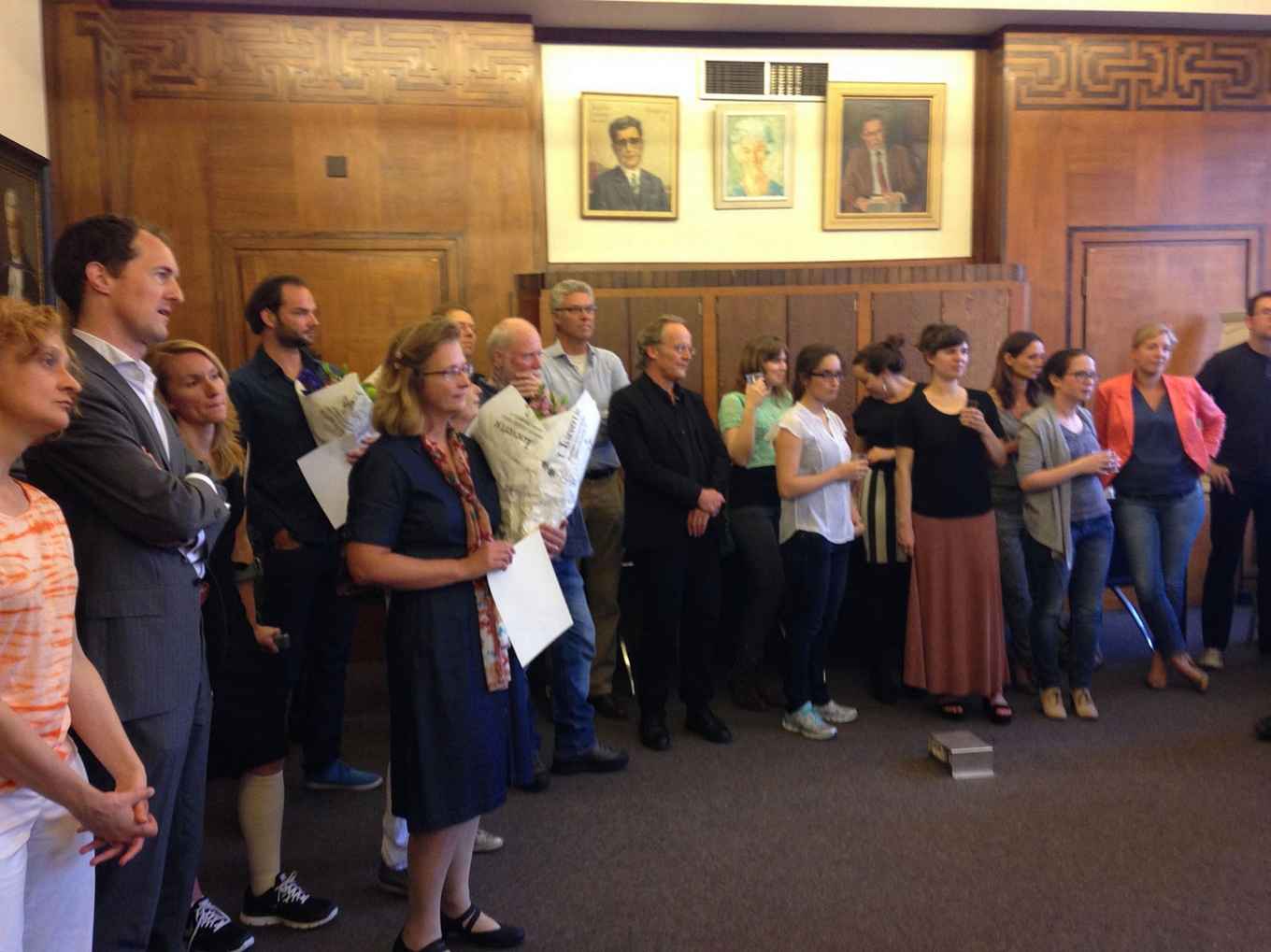Ingrid de Zwarte and dr. Gemma Blok win the ASCH Valorisation Award
26 June 2015

Selecting the winners was no easy task for the ASCH jury due to the many entries and the very different types of activities involved. How to compare an exhibition to a media performance, a TV programme or a blog? In the end the jury made its choice based on which entry was the most appealing (conceptually) and wide-ranging (in the type of activities engaged in), but also which project was clearly inspired by the nominee’s own line of research.
Gemma Blok was selected for her work on two projects in the past year: an investigation commissioned by the GGD Achter de Voordeur, a history of public mental health in 20th century Amsterdam, and her new research project on the so-called ‘heroine epidemic’ in the Netherlands in the 70s and 80s. For the latter project she has set up an interactive website and blog, inviting respondents to contribute to her research, which has proven to be hugely successful. The jury applauds these initiatives, particularly because Blok not only valorises and popularises existing research, but also generates new research ideas inspired by input from the public.
Ingrid de Zwarte was selected for her contributions to an exhibition on the Dutch food crisis in 1944-1946 at the Verzetsmuseum last year, which not only contributed to a record number of visitors to the museum, but also generated a lot of media attention. De Zwarte was interviewed by several newspapers, radio and TV programmes. The jury is impressed by how De Zwarte put her PhD research in the public spotlight in such a clear and engaging way.
About the award
The ASCH Valorisation Award is presented annually to (a) member(s) of the Amsterdam School of Culture and History. The award recognises an individual or team’s ability to reach new audiences, demonstrating a lasting impact on the public. The award is accompanied by a prize of € 250.
